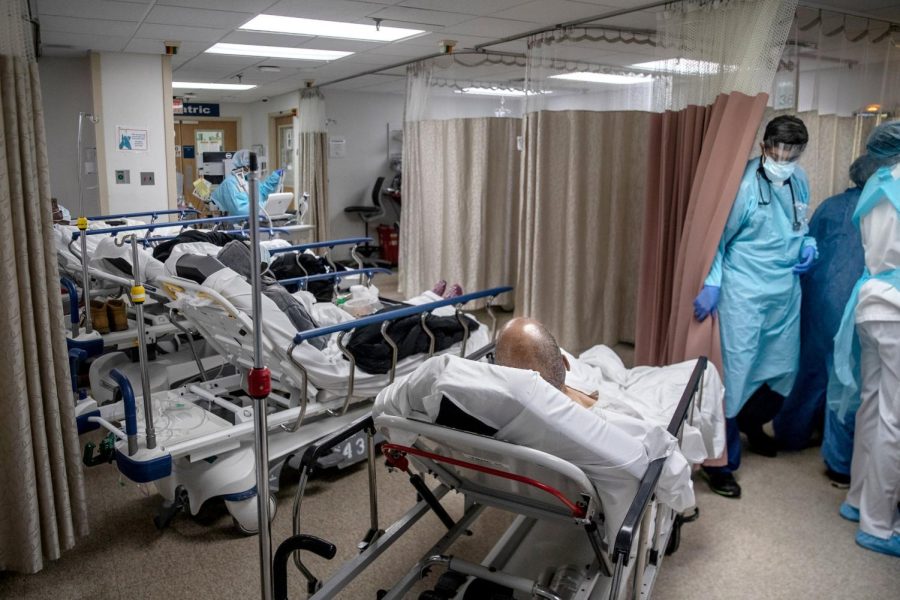An EMT’s insight into an individual’s fight with Covid
A ward of COVID patiens in Brooklyn, New York
March 2, 2022
Writer’s note: The following is a true story that I hope encourages everyone to stay safe and take care of themselves and others. The patient’s name has been changed for HIPAA purposes.
My paramedic partner and I walked into John’s room where he had been laying for the past two months. John was 28 years old and had just gotten married. He was not vaccinated when he and his wife got COVID. John’s wife, Sara, was vaccinated and said she felt like she had a bad cold. John had no previous medical history and was brought to the emergency room by his wife when he started having trouble breathing. Three days later they were separated when he was wheeled into the Intensive Care Unit and placed on a ventilator through a tracheal tube. His condition further deteriorated and required him to be put on extracorporeal membrane oxygenation (ECMO).
ECMO is a resource-intensive last resort for very sick patients. The machine “pumps and oxygenates a patient’s blood outside the body, allowing the heart and lungs to rest,” according to UCSF Health. In spring 2020, about 60% of COVID patients on ECMO survived 90 days after initiation. This rate dropped below 50% by the end of 2020 according to a new international study published in Lancet.
John could not stand or eat and had to be fed through an IV. After work, Sara stayed with him every night in the hospital. She said, “I prayed every night that he would wake up the next morning.” John was barely able to talk and could only say a few words before being out of breath. Because his body was so weak, he also could not control his bladder.
Still, John said he wanted to try to walk to the stretcher. It took him five minutes to recover his breath just from sitting up. He stood up momentarily before his legs gave out and we caught him. Sara grabbed the urinal as John started shaking and urinating uncontrollably. John uttered through gasping breaths, “If I knew it was going to be like this, I absolutely would’ve gotten the vaccine.”
We lifted him onto the stretcher and hooked him up to our ventilator. Sara held back tears as she thanked the nurses who had taken care of them for the last two months. The nurses cheered for John as we rolled him out on the stretcher, but he did not smile. One nurse asked, “Are you happy you finally get to go home?” John responded, “I am just happy I’m leaving alive.”



